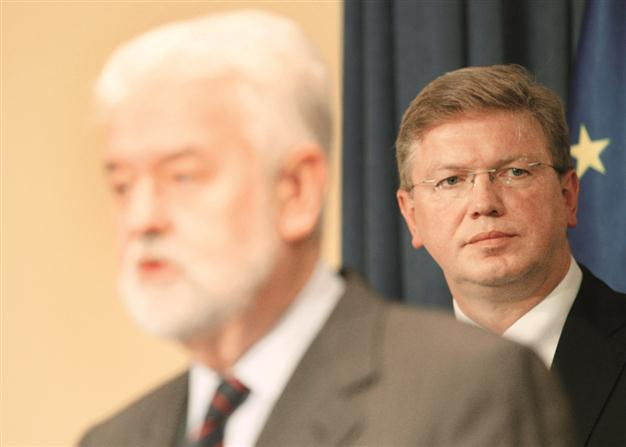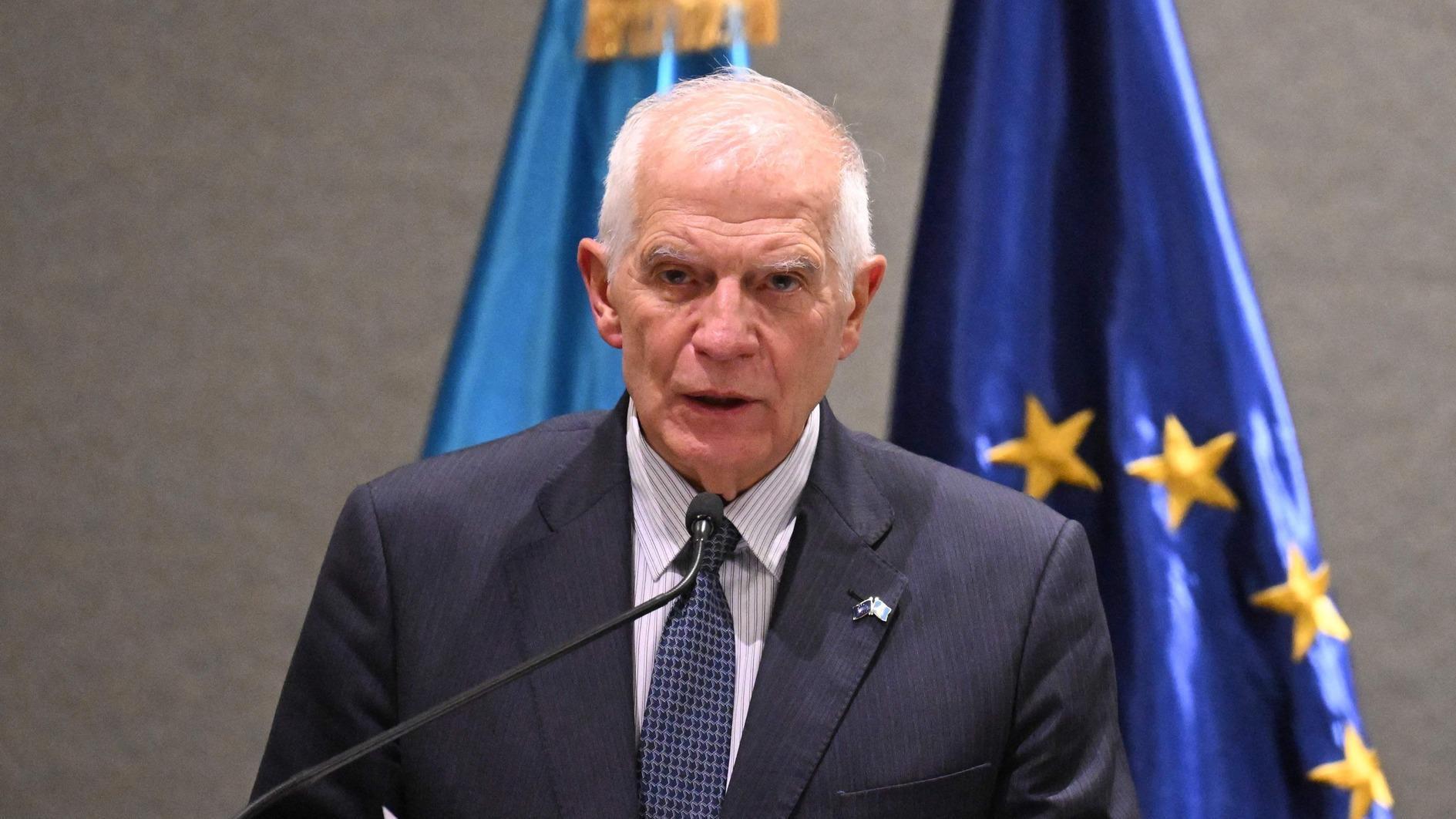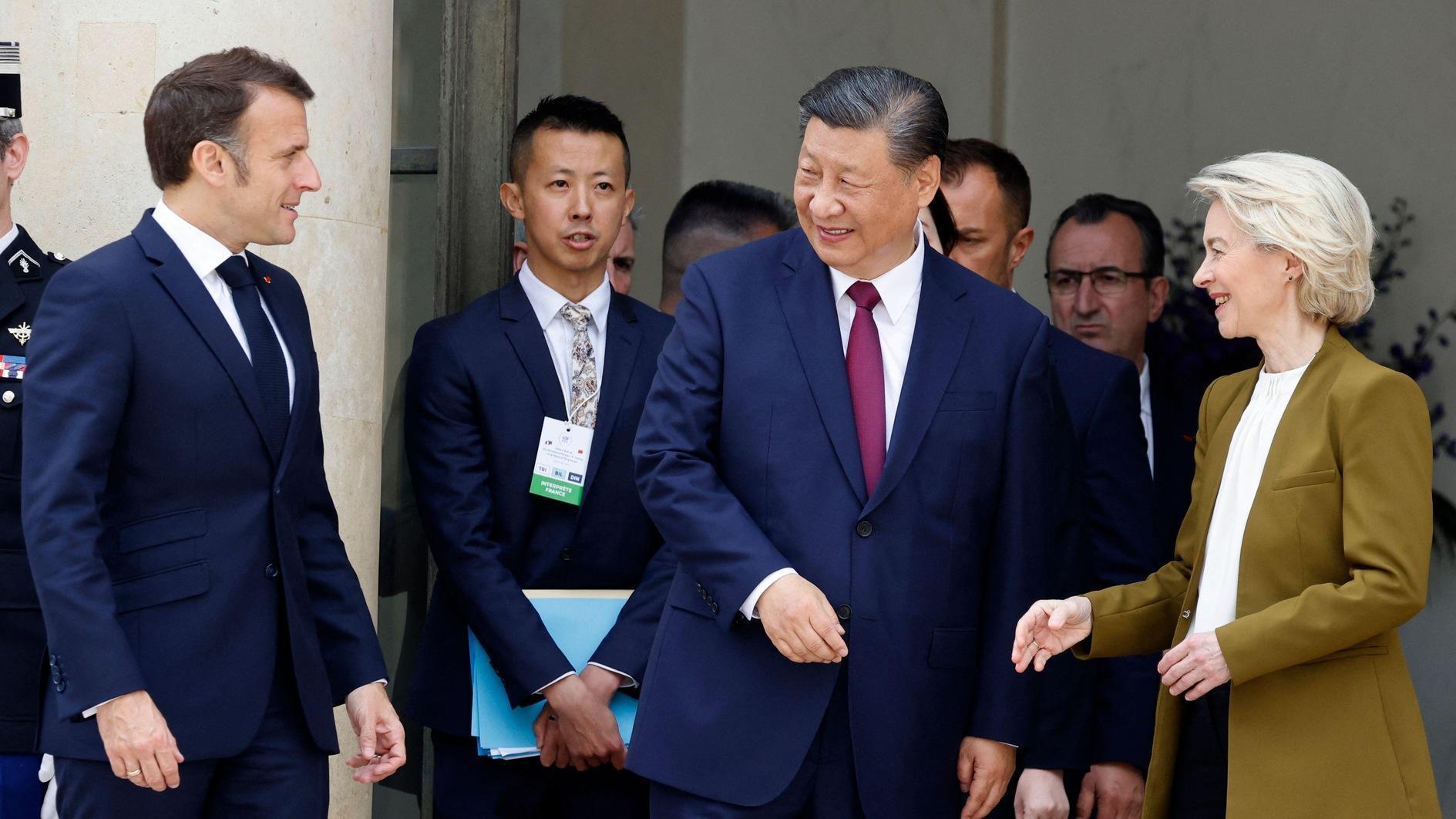‘Serbia’s EU bid depends on ties with Kosovo’
BRUSSELS - Agence France-Presse

European Commissioner for Enlargement Stefan Füle (R) listens to Serbian PM Mirko Cvetkovic in this file photo. AP photo
Serbia faces little chance of clearing a key hurdle to EU membership by being named an official candidate to the bloc next month unless it normalizes ties with Kosovo, European diplomats said Nov. 8.The European Union’s 27 leaders must decide unanimously in December whether or not to declare Serbia a candidate, but Germany in particular is opposed failing progress in Belgrade’s relations with Pristina, diplomats said.
The European Commission last month recommended Serbia be granted candidate status “on the understanding” that Belgrade re-engage in dialogue with Kosovo.
EU-sponsored talks between the two sides that raised huge hopes when they began in March have broken down amid violence in northern Kosovo, home to a Serb majority loyal to Belgrade.
But a German diplomat said on condition of anonymity that his country awaited “more from Serbia than the Commission that is a step towards normalization of ties with Kosovo. It’s solely in this case that from our point of view Serbia can obtain candidate status.” Belgrade does not accept Kosovo’s 2008 declaration of independence and still considers the territory as its southern province.
Around 40,000 ethnic Serbs live in northern Kosovo and another 80,000 live in other enclaves, representing a little over five percent of the overall Kosovo population of some two million.
Serbia’s government spokesman Milivoje Mihajlovic said Belgrade would resume the dialogue when the situation surrounding the disputed border crossings returned to “before July incidents” when Kosovo policemen and custom officials tried to gain control the two posts in the north. Serbia has remained “committed” to a dialogue with Pristina but blasted Kosovo for trying to change the situation on the ground with “unilateral acts,” he said.
















